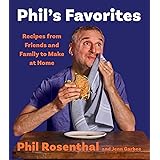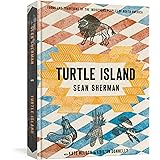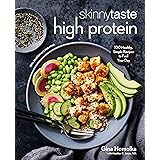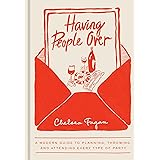The quest for optimal health often leads individuals down many winding paths, from conventional wisdom to alternative philosophies. In the accompanying video, Dr. Sebi challenges prevailing dietary norms, particularly concerning the diet best suited for people of African descent, or indeed, for anyone seeking true vitality. He provocatively questions the notion that common staples like rice, beans, potatoes, yams, and various meats are God-given nourishment for Africans, proposing instead a return to an ancestral, native diet. This perspective highlights the critical connection between our historical origins, our environment, and the foods that truly sustain us.
Dr. Sebi’s unique approach centers on the idea that every indigenous group was provided with a specific, native diet by their creator, perfectly aligned with their biology and environment. He points out that the modern African diet, often replete with processed foods and animal products, deviates significantly from what he considers the true ancestral eating pattern. This divergence, he suggests, is a root cause of many contemporary health issues. Understanding Dr. Sebi’s African diet means rethinking our plates and reconnecting with natural, vibrant foods.
Challenging Conventional Wisdom: What Is Truly “Food”?
For many, the idea of a healthy diet includes staples like milk for strong bones or various meats for protein. Yet, Dr. Sebi starkly contrasts this view, asserting that these widely accepted foods are not native or beneficial for human consumption, especially within the framework of an African diet. He specifically mentions abstaining from lamb, other meats, and milk, attributing his remarkable health and happiness at 82 years old to this very discipline. His personal testimony serves as a powerful example, demonstrating a tangible outcome of his dietary philosophy.
Consider the analogy of a specialized engine: if you put the wrong type of fuel into a high-performance vehicle, it will sputter and eventually break down, regardless of how commonly that fuel is used in other engines. Similarly, Dr. Sebi argues that human bodies, particularly those with an African genetic lineage, are designed for specific “fuel” – foods that are electrically active and naturally occurring in their native environments. Consuming foods foreign to this design, even if they are popular globally, can lead to systemic imbalance and disease over time. This foundational principle challenges us to look beyond cultural habits and commercial influences, focusing instead on biological compatibility.
The Essence of a Native Diet: Echoes from Ancient Civilizations
When asked about the true African diet, Dr. Sebi’s response is profound and enlightening: “the same as the Toltec and the Olmec. All that which is native.” This statement is not merely a historical reference; it is a declaration about the universal principles of human nutrition rooted in indigenous wisdom. The Toltec and Olmec civilizations, ancient peoples of Mesoamerica, flourished on diets rich in native plants, fruits, and vegetables, thriving without the animal products and processed foods prevalent today.
This comparison suggests a universal dietary blueprint for optimal human health, one that transcends geographical boundaries but remains tied to nature’s original provisions. It implies that regardless of continent, truly healthy eating involves consuming what is indigenous to the land and unadulterated by human intervention. Rather than complex dietary schemes, the focus shifts to simplicity and purity. It’s like comparing a wild garden, brimming with diverse, self-sustaining flora, to a factory farm, where crops are grown in monocultures with artificial inputs. The wild garden provides natural synergy and nutrients, whereas the factory farm might offer quantity but lacks vitality.
Unpacking “Native” Foods and the Alkaline Diet Principle
So, what exactly constitutes a “native” diet in Dr. Sebi’s philosophy, especially for those interested in the African diet? It’s predominantly an alkaline, plant-based approach. This means favoring foods that, when metabolized, produce an alkaline ash, thereby helping the body maintain its natural pH balance. In contrast, many modern diets, heavy in meat, dairy, processed grains, and sugars, are acid-forming, potentially contributing to inflammation and various health problems.
An alkaline, native diet is rich in specific fruits, vegetables, grains, nuts, and seeds. Think of electric foods like naturally grown fruits such as berries, grapes, dates, and mangoes. Consider leafy greens like kale, dandelion greens, and watercress. Certain grains like quinoa, spelt, and wild rice are acceptable, as are specific nuts and seeds such as walnuts and sesame seeds. Unlike a typical vegan diet that might include highly processed meat substitutes or soy, Dr. Sebi’s approach meticulously excludes hybrid foods and genetically modified organisms, focusing solely on natural, organic, and unadulterated sources. This selective consumption is crucial, as not all plant-based foods are considered equally beneficial within his framework. The distinction lies in the food’s natural cellular structure and its compatibility with the body’s electrical system.
The Dr. Sebi African Diet and its Impact on Consciousness and Well-being
Beyond physical health, Dr. Sebi often spoke about the connection between diet and consciousness. He believed that consuming foods that are alien to our biological makeup not only damages the body but also dulls the mind and spirit. When our bodies are free from toxins and inflammation, nourished by the “electric” foods they are designed to consume, our mental clarity, emotional stability, and spiritual awareness can naturally flourish.
His experience at 82, feeling “happier than I’ve ever been in my life,” underscores this holistic benefit. It’s not just about avoiding illness; it’s about achieving a state of vibrant well-being and heightened awareness. This dietary shift can be likened to clearing away mental fog, allowing the sun to shine through. The body becomes a cleaner vessel, more capable of experiencing joy and connection. Therefore, embracing Dr. Sebi’s African diet isn’t just a physical undertaking; it’s an investment in one’s entire being, leading to a more conscious and fulfilling existence.











